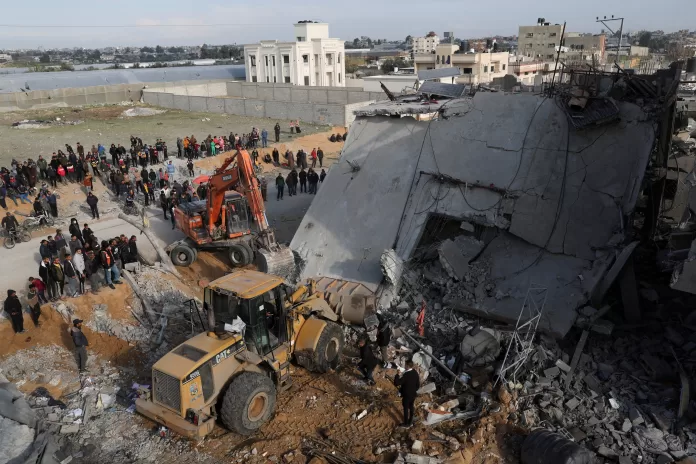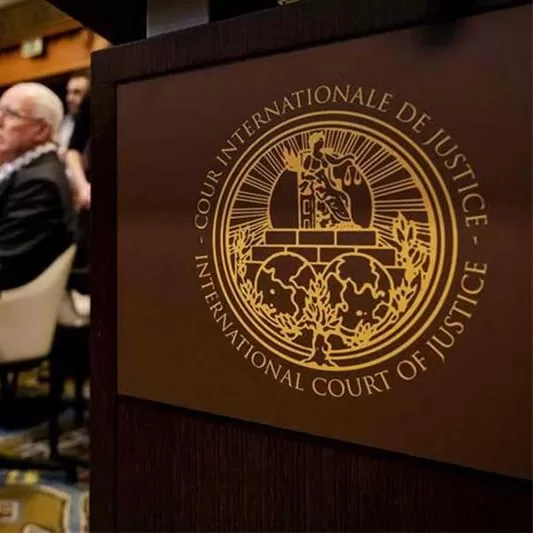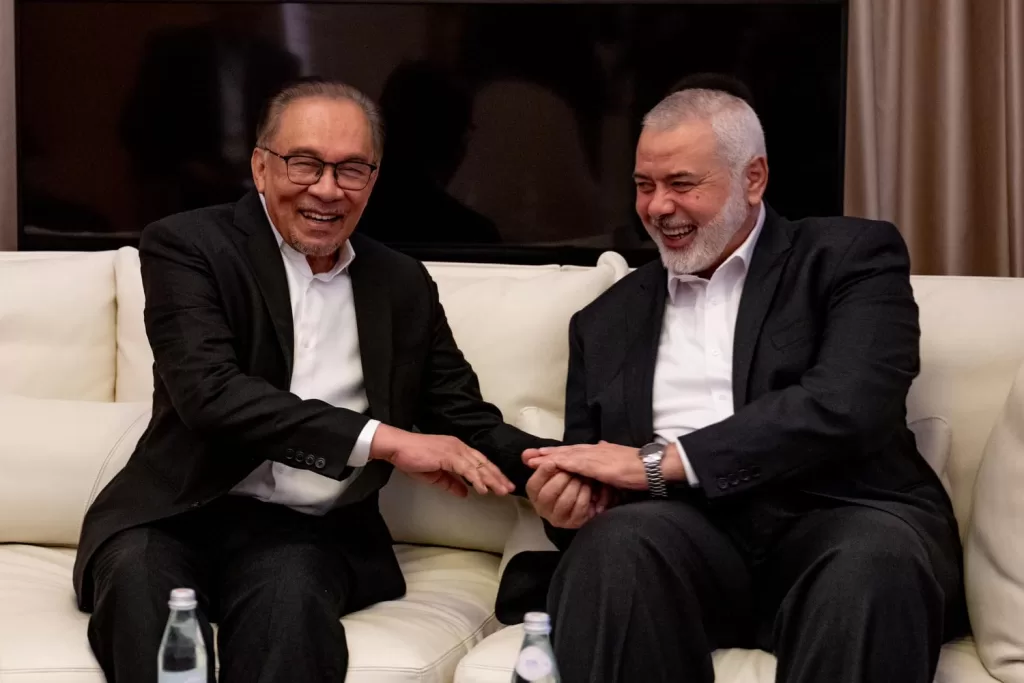
Israel’s latest ground offensive in Rafah, the southernmost city in Gaza, has triggered international frustration over its military strategy towards ‘total victory’ over Hamas, resulting in a significant loss of diplomatic support and growing isolation. With close allies pressuring Israel to change its course, its steadfast defiance carries the growing risk of economic and security consequences that could damage its international standing in the long term. In a significant move, US President Joe Biden confirmed that US-supplied bombs have killed civilians in Gaza and announced the freezing of offensive weapon transfers to Israel until it halts its invasion of Rafah.
However, Biden’s action has sparked backlash from the US House of Representatives, which recently passed legislation forcing him to proceed with congressionally approved weapons transfers to Israel. Though, Biden is expected to veto this legislation as he faces legal, political, and strategic pressures. Legally, the US is obligated to stop exporting weapons to nations that are likely to violate international law. Politically, Biden is under intense pressure as he runs for re-election and is urgently trying to secure a ceasefire deal before the November elections.
Strategically, Biden seeks to use his clout to normalize relations between Israel and its Gulf neighbors as part of Abraham Accords, with an aim to isolate Iran and its allies.
Israel and Normalization with Saudi/Gulf
To this end, the US is negotiating a renewed defense pact with Saudi Arabia, which would involve the kingdom recognizing Israel in exchange for Israel approving an independent Palestinian state. However, this deal puts Netanyahu in a difficult position: continuing with a full-fledge operation in Rafah risks losing US support and potential recognition by Gulf states. On the other hand, halting the offensive could lead to losing support from his hard-right coalition members and potentially being removed from the premiership, which heavily depends on his perceived victory over Hamas.

Nevertheless, Netanyahu has demonstrated that he operates according to his own political and strategic considerations, which progressively diverge from those of the US. In a recent statement, he reiterated his unwavering determination to pursue his war policy, even if it means standing alone. Expressing frustration with international pressure, particularly from the US and the UN, he argued that condemning Israel’s actions in the war undermines its right to defend itself against Hamas. Undeterred by global criticism, Netanyahu has committed to continuing the military offensive, with Israel intending to deploy more troops to Rafah, deemed the last Hamas stronghold. This shift in Israel’s stance, from alignment to defiance of American interests, suggests that Israel may be willing to forgo the possibility of normalizing relations with its Gulf neighbors. Consequently, these Gulf states might lean towards US adversaries like Iran and China. Should a unified Middle East front emerge against Israel, the US may find itself unable to protect and advocate for Israel’s interests in the region, a scenario it seeks to avoid. And it’s not only US and the Gulf states, the Israeli posture is also at odds with other allies and nations of the Islamic world.
Egypt
For the first time in 45 years, Israel’s longstanding peaceful cooperation with Egypt to include diplomatic support, intelligence sharing, and mediation efforts between Israel and Hamas, has reached a historic low due to Israel’s recent Rafah operation. Angered by the situation, Egypt has begun to shift its policies. The strategy entails increasing international pressure on Israel by linking the reopening of its border crossing at Rafah, crucial for humanitarian aid into Gaza, to conditions such as withdrawal of Israeli Defense Forces (IDF) from Gaza and returning control of the crossing to the Palestinians. Moreover, Egypt has announced its support for South Africa’s genocide case against Israel at the International Court of Justice (ICJ), potentially rallying more nations to join. Egypt’s emerging approach aims to prevent Israel from advancing further into Rafah and to pressure Israel to halt the war, as it risks mass exodus of Palestinian refugees into Egypt. As inflation soars in Egypt, this could fuel domestic public anger against President Sisi.
Turkey
In Asia Minor, Turkey has maintained diplomatic relations with Israel since 1949 and was one of the first Muslim nation to recognize Israel. This has included economic cooperation through free trade agreements, and strategic defense-military cooperation. President Erdogan has become increasingly vocal against Israel and in defense of Hamas, further deteriorating ties with Israel. Turkey has not only suspended trade with Israel, but Erdogan also recently warned that if Israel defeats Hamas, Anatolia could be the next target.

Malaysia Indonesia
Calls to denounce Israel are echoing even in Southeast Asia. Though Indonesia, the world’s largest Muslim-majority country, is seeking to join the Organization for Economic Co-operation and Development (OECD), of which Israel is a member, it has refused to normalize relations with Israel in exchange for expedited entry into the OECD. Pursuing an anti-Israel policy, both Indonesia and Malaysia are actively engaged in international forums, including the International Court of Justice (ICJ), aiming to declare Israel’s occupation of Palestinian lands illegal.
The US is concerned about Malaysia’s increasing relations with Iran and Hamas, seeing the Southeast Asian country as a center for funneling finances to these groups through fundraising and illicit oil sales. Despite these concerns, Malaysian Prime Minister Anwar Ibrahim recently met with Hamas leader Ismail Haniyeh in Qatar. In an interview later, he questioned the US role in fueling the conflict and supporting what he described as ‘Palestinian genocide’ by condoning Israel’s actions.
United Nations and Post Conflict Vision
On the other hand, the UN General Assembly has adopted a draft resolution by an overwhelming majority to support the Palestinian bid for full UN membership. Opposing the UN resolution, Netanyahu once again reiterated his stance in a statement, asserting, ‘Neither the UN General Assembly nor any other body will prevent Israel from exercising our basic right to self-defense.’ He also rejected the proposal to recognize a Palestinian state, emphasizing that his government will not permit the establishment of what he termed a ‘terrorist state’. Netanyahu’s statements come at a crucial time as he faces criticism within his own government, especially from impatient military generals and Defense Minister Yoav Gallant. Many in Israel’s war cabinet have been advocating for the re-establishment of a Palestinian civilian government in Gaza, contrary to Netanyahu’s post-war vision favoring Israeli civil or military governance. Recently, Gallant broke his silence to criticize Netanyahu, arguing that his war strategy will further undermine the Israeli military’s achievements.
Gallant called for post-war Gaza to be governed by non-Hamas Palestinians with support of key Arab nations. His stance reflects the long-standing concerns of the United States and others in the international community for Israel to develop a viable governance plan for Gaza after the war.
Despite this, Netanyahu downplayed the need to consider the post-war situation, insisting that his focus remains on continuing the war until every member of Hamas is neutralized. It is uncertain whether Israel will decisively defeat Hamas, secure the release of its hostages, and succeed in resisting the establishment of an independent Palestinian state through its current approach. However, what is clear is that a full-blown operation in Gaza may result in the creation of more enemies and international isolation.




